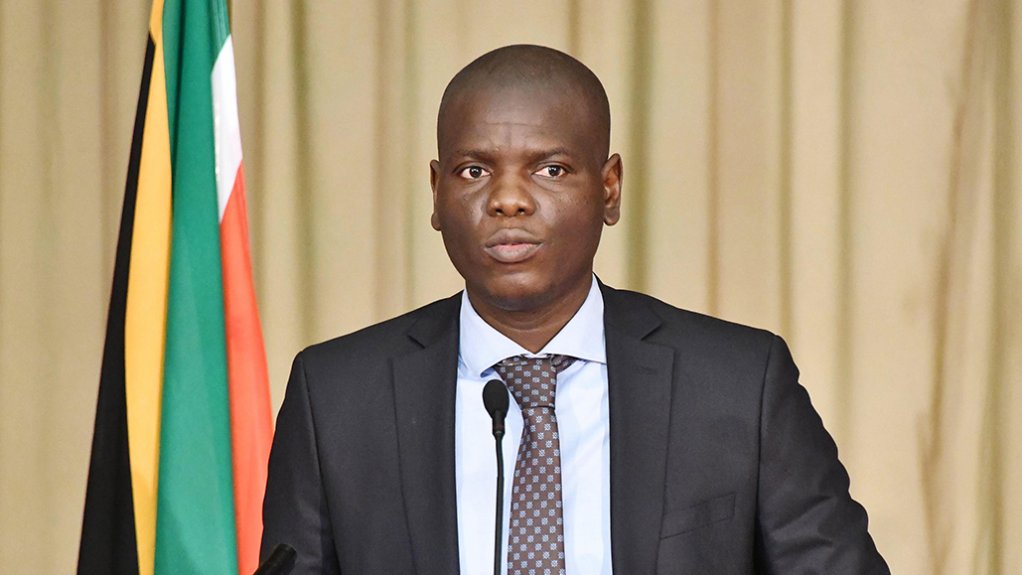Justice and Correctional Services Minister Ronald Lamola says his department had to plan thoroughly to ready themselves for the masses of cases arising from last July's unrest in KwaZulu-Natal and Gauteng.
"We have all learnt a valuable lesson from the July unrest. This necessitated the Department of Justice to issue directives to speed up processing of accused persons that emanated from the July unrest due to the sheer volume of arrests that came at the time that the system had to absorb.
Lamola told the SA Human Rights Commission on Thursday, "We as the justice [department] also had a responsibility to coordinate the operations of the courts countrywide, including where there is a need to expand and have more courts."
During his testimony at the commission hearing into the unrest that caused destruction and led to widespread looting in July last year, Lamola said his department had to establish a case management task team to monitor and track criminal cases arising from the violence.
"In order to prepare a response to the July events, the NATJoints (National Joint Operational and Intelligence Structure) committees met daily, sometimes more than once per day to deal with the various operational aspects within the criminal justice value chain.
"The structures and sub-committees met daily throughout the commencement of the unrest until well into the month of September 2021."
Retired magistrates, prosecutors brought in
He said the NATJoints sub-committee meetings dealt primarily with the South African Police Service (SAPS) operational matters with joint intelligence services briefings taking place with updates presented daily.
"The Department of Justice played a critical and pivotal role in the case management task team as the focus was on the management of criminal cases arising from SAPS arrests and National Prosecuting Authority (NPA) prosecutions.
"It was the department's responsibility to ensure that the courts were in a position to deal with cases speedily and efficiently."
Lamola told the commission that cases flowing from the unrest did not enter the Integrated Criminal Justice System (ICJS) with "unique identifiers which would allow for rapid data gathering on the system".
"Regional heads within the department had to manually, on a day-to-day basis, in collaboration with the NPA and SAPS, record the unrest cases and record their processes through the system," he said.
Lamola told the commission that his department also had to bring in retired magistrates and prosecutors to ensure the speedy processing of those arrested.
He said that the department had to take into consideration various socioeconomic aspects when looking at different cases.
Zuma incarceration
He said no further tracking of cases could be done in September after the department was hit by a ransomware attack causing the ICJS system shutdown.
In an attempt to suppress the unrest, Lamola said his department tried to be transparent about the incarceration of former president Jacob Zuma.
He said the department tried to keep the public well informed about how Zuma was incarcerated and provided updates on his condition.
In dealing with the high number of cases, Lamola told the commission that his department also had to look at the Covid-19 protocols from the police services, court cells and correctional services.
"It was a very difficult situation because you did not want any outbreak. Were worried that this will further compound challenges of congestions in cells and sit with a huge number of inmates infected with Covid-19."
"The biggest concern was that if there was a massive incarceration, we could be dealing with a human catastrophe with people being infected with Covid-19," he said.
When asked by evidence leaders if he knew why the unrest was happening and who the culprits were, Lamola said the intelligence operatives and SAPS would be better placed to answer it.
EMAIL THIS ARTICLE SAVE THIS ARTICLE
To subscribe email subscriptions@creamermedia.co.za or click here
To advertise email advertising@creamermedia.co.za or click here











